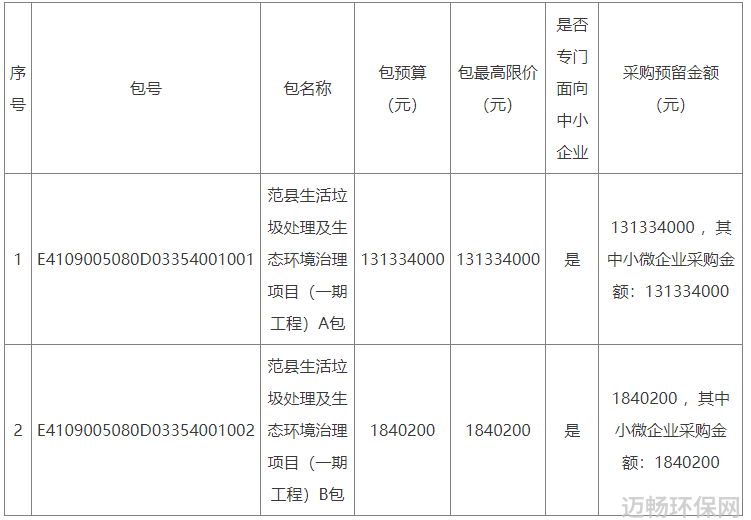近日,南京市印发《南京市固体废物治理攻坚战实施方案》。 规划要求,新建(改扩建)危险废物焚烧设施总设计处理能力不得低于1万吨/年。 推进江北垃圾焚烧发电厂二期、六合垃圾焚烧发电厂、高淳餐厨垃圾处理厂、丽水餐厨垃圾(餐)垃圾处理站规划建设,基本实现生活垃圾无害化处理。 全文如下:
市政府办公厅关于印发《南京市固体废物治理实施方案》的通知
各区人民政府,市政府各委、局,市政府各直属单位:
经市政府同意,现将《南京市固体废物管理攻坚战实施方案》印发给你们。 请认真组织实施。
南京市人民政府办公厅
2019 年 2 月 28 日
(本文向社会公开发布)
南京市固体废物防治攻坚实施方案
为全面加强我市固体废物污染防治,严厉打击固体废物非法转移、倾倒、填埋等环境违法行为,有效防范环境风险,打好固体废物治理攻坚战,保护环境安全和人民健康,特制定本实施方案。
一、总体要求
(一)指导思想。 以习近平新时代中国特色社会主义思想为指导,全面贯彻落实党中央、国务院和各省市党委、政府关于打好污染防治特别是扎实推进污染防治攻坚战的决策部署固体废物污染防治工作,突出“源头控制、安全处置、过程监管、风险防范”四个环节,着力提高固体废物利用处置能力,压实固体废物污染防治责任,着力推动中央和省环保督察整改任务,解决我市当前和今后一个时期固体废物环境管理中存在的突出问题,努力实现固体废物“减量化、资源化、无害化”。
(二)主要目标。 到2020年,基本建立覆盖全市的固体废物资源化利用和无害化处理处置体系,基本建立源头严防、过程管理严格、违法行为严惩的较为完善的固体废物监管体系,有效解决固体废物污染环境问题。控制固体废物环境污染; 全市危险废物标准化管理抽查合格率达到85%以上,一般工业固废资源化利用能力进一步提高,城市生活污水处理厂污泥无害化处置能力基本满足需要,生活垃圾处理方式中焚烧所占比例已达到规划目标要求。
二、主要任务
(一)推进源头管控
1.调整工业能源结构。 加快全市主导产业优化升级,以高端化、智能化、绿色化、集群化为发展方向,严格执行国家和省产业结构调整限制、淘汰、禁止目录,落实《南京市新建禁止类制造业项目《限制目录(2018年版)》及相关产业政策要求,减少低值、难处理危险废物的产生。(市发改委牵头,市发改委牵头工业和信息化局配合,各区政府(园区管委会)负责落实(以下任务和措施需各区政府(园区管委会)落实,不再列出)
加快淘汰落后产能,支持工业固体废物资源化利用新技术、新装备、新产品的应用,提高工业绿色发展水平。 (市工业和信息化局牵头,市发展改革委配合)
2、提高源头管理水平。 推动绿色制造体系建设,引导企业在生产过程中使用无毒无害或低毒低害原材料,鼓励相关单位开展固体废物减量研究、开发和应用,无害化和资源化利用技术。 (市工业和信息化局牵头,市科技局配合)
按照省部署部署,推进危险废物“点对点”应用等改革试点,鼓励企业降级利用有利用价值的危险废物。 (市生态环境局牵头)
3. 推进企业清洁生产。 支持和引导企业参加自愿清洁生产审核,鼓励企业自行利用和处理固体废物。 对危险废物经营单位、危险废物产生量100吨以上的废物产生单位以及其他重点固废单位实施强制清洁生产审核,提出并实施废物减少使用、产生和资源化利用方案。 鼓励产生大量危险废物的企业自行建设利用处置设施。 (市工业和信息化局、生态环境局按职责牵头)
4.整顿高风险企业。 开展危险废物“去库存、控风险”专项行动。 对年产生废物500吨以上、累计危险废物储存量2000吨以上且不减反增、当年未落实处置目的地的企业,督促企业限期整改。 未按要求完成整改的,将依法依规给予处罚。 被处理。 (市生态环境局牵头)
5、严格风险项目准入。 禁止审批不能实施危险废物利用处置办法的项目; 严格审批本市无需求、产能饱和的危险废物处置利用项目,以及产生大量危险废物且本市不具备配套利用处置能力的项目。 新建危险废物年产生量5000吨以上的企业必须自行建设利用处置设施,新建(改扩建)危险废物焚烧设施总设计处理能力不得低于1万吨/年。 (市发展改革委、生态环境局按职责牵头)
6. 加强生产、废弃物项目环境影响评价管理。 严格规范建设项目固体废物污染防治环境影响评价,细化建设项目固体废物属性认定和污染防治措施的可行性和合理性分析。 对固体废物利用处置存在重大环境风险或未落实危险废物清单削减要求的企业,暂停其新建废物生产和废物项目的环境影响评价审批。 (市生态环境局牵头)
7. 大力推进垃圾分类处置。 按照国家生活垃圾分类制度实施方案要求,进一步完善垃圾分类投放、分类收集、分类运输、分类处理体系,积极促进生活垃圾资源化利用; 全市党政机关、事业单位、社区组织、公共场所管理单位等事业单位及相关企业全面落实生活垃圾强制分类政策,2020年底前实现全市覆盖。市城管局牵头,市发改委、房产局、市场监管局、教育局、卫生健康委、生态环境局、机关事务管理局配合)
(二)提升码头安全处置能力
八、推进工业窑炉协同处置。 建立多部门协调机制,加强正面宣传引导,开展技术攻关和试点示范推广,按规定落实税收、金融等激励政策,研究制定协同处置的互惠政策,消除市场和制度瓶颈鼓励依托规划保留的水泥窑炉企业、钢铁企业、火电厂现有工业窑炉协同处置固体废物。 (市发展改革委牵头,市工业和信息化局、生态环境局、科技局、财政局、市场监管局配合)
9.完善危险废物集中处置设施建设。 落实全省危险废物集中处置设施建设规划要求,将危险废物集中处置设施纳入本市重大环保公共基础设施规划布局; 推动有条件的水泥、钢铁企业利用现有设施协同处置危险废物,作为本市危险废物处置能力的有效补充。 到2020年,全市危险废物集中处置能力基本满足需求。 (市生态环境局牵头,市发展改革委、工业和信息化局、规划资源局配合)
10. 提高危险废物利用处置设施运行管理水平。 严格执行危险废物利用处置标准和规定,加强技术培训和交流,引导和鼓励企业加大环保投入,积极利用国内外先进技术,提高现有设施的自动化程度和运行稳定性,支持培育并引入专业化运营和管理。 不断提高设施利用和处置水平。 (市生态环境局牵头)
11. 推进一般工业固体废物综合利用。 全面找准地方一般工业固废综合利用能力差距,巩固国家资源综合利用“双百工程”示范基地成果,推进工业固废综合利用重点示范工程建设。 支持和推动再生资源综合利用企业规范化建设,促进再生资源规模化、产业化发展。 大力推进新能源汽车动力电池回收利用。 开展工业固废资源综合利用评价,推动综合利用税收优惠政策落实。 (市工业和信息化局、国家发展改革委按职责牵头,市生态环境局、市场监管局、税务局配合)
12.提高城市污泥处置能力。 充分发挥现有火电厂、水泥窑企业积极性,重点推进大唐南京电厂等有条件企业污泥协同处置能力建设,满足城市生活污水处理中生活污泥应急处置需求城市里的植物。 (市水务局、生态环境局按职责牵头,市发展改革委、工业和信息化局、规划资源局、财政局、城建集团会配合)
修订完善《南京市城镇生活污水处理厂污泥处置专项规划》,加快全市污泥处置中心设施建设,增强污泥永久处置能力,防范和降低环境风险。 (市水务局牵头,市发展改革委、工业和信息化局、规划资源局、生态环境局、财政局、城建集团配合)
推进河道清淤泥沙减量、资源化利用和处置,探索建立严格检测、合理分类、资源化处理体系,提高河道泥沙安全利用水平和能力。 (市水务局牵头,市城管局、生态环境局配合)
13. 继续推进生活垃圾处理设施建设。 落实《南京市生活垃圾“十三五”生活垃圾无害化处理规划》,加快江北垃圾综合处置中心建设,推进江北垃圾焚烧发电厂二期工程、六合垃圾焚烧发电厂、高淳餐厨垃圾处理厂、丽水餐厨垃圾(餐饮)垃圾处理站的规划建设,基本实现了生活垃圾无害化处理。 (市城管局牵头,市规划资源局、生态环境局、城建集团配合)
14. 推进建筑垃圾资源化利用。 推进建筑垃圾资源化利用体系建设,研究制定加强全市建筑垃圾资源化利用的相关制度和措施,加快实施重点区域建筑垃圾资源化利用项目规划、选址和建设,促进建筑垃圾资源化利用。多渠道对建筑垃圾进行资源化利用,提高全市建筑垃圾处理能力和资源化利用水平。 (市建委牵头,市城管局、规划资源局、城建集团配合)
15.推进环保产业园区建设。 推动全市环保产业园区规划产业项目实施,促进生活垃圾处理、废旧物资回收利用、绿色能源示范、报废汽车回收拆解、危险废物处置等产业发展; 实施固体废物利用处置再生资源示范工程,积极建设循环经济示范园区。 加快江南环保产业园区控制性详细规划编制审批。 (建宁区、浦口区政府按辖区牵头,市发展改革委、规划资源局、城市管理局、工业和信息化局、市场监管局、生态环境局、城建集团配合)
(三)强化过程监管
16.完善固体废物收集和管理制度。 加强危险废物分类收集和标准化储存,推进工业园区危险废物集中收集、储存试点工作,鼓励危险废物处置单位建设区域收集网络和储存设施。 (市生态环境局牵头)
完善生活垃圾中危险废物收集转运网络。 (市城管局牵头,市生态环境局配合)
结合国家《生产者责任延伸制度实施方案》,探索引导相关生产经营企业利用其销售网络和渠道,对废弃产品进行回收利用。 (市发展改革委牵头,市工业和信息化局、市场监管局、生态环境局配合)
推动港口、码头配套船舶固体废物收集转运点建设,协调建立船舶流源产生的危险液残渣、残油、废油、污泥等污染物接驳转运设施。 (市交通运输局、南京海事局按职责牵头,市生态环境局配合)
加强医疗废物源头管理,督促医疗机构严格执行医疗废物管理规章制度、工作流程、分类管理、特殊包装、集中存放等要求,防止社会非法处理利用。 推动偏远郊区医疗废物收集点建设,进一步优化完善全市医疗废物收运方案,提高医疗废物收运效率。 (市卫生健康委牵头,市生态环境局配合)
17.推动再生资源产业规范发展。 加强对再生资源行业回收网点的检查,加强行业宣传教育和政策引导,研究出台合理布局、清洁发展的行业相关政策,完善再生资源回收基础设施和回收网络体系。 推广回收新模式,鼓励和引导回收企业转型升级,促进行业集聚、规模化、清洁化,实现行业绿色健康发展。 规范行业经营活动,加大行业清理整顿力度。 (市市场监管局牵头,市发展改革委、工业和信息化局、公安局、生态环境局、城管局、规划资源局配合)
加强电子垃圾、废轮胎、废塑料、废衣服、废旧家电拆解等再生资源回收利用过程中固体废物污染环境防治监管,查处小型违法处理依法处理污染环境的利用车间。 (市生态环境局牵头,市市场监管局、公安局、工信局配合)
18.加强危险废物运输监管。 加强危险废物运输过程管理,完善医疗废物道路运输经营许可,推动危险废物运输专业化、标准化。 严格水路进出港口危险废物的申报和管理,建立健全相关安全环保管理制度。 将危险废物运输车船纳入日常检查,严格控制非法转运,加大对道路、水路特别是跨境路口、收费站、道路检查站、船闸、码头的检查力度。 (市交通运输局、南京海事局按职责牵头,市生态环境局配合)
加强沿河湖泊重点区域非法固体废物贮存、倾倒、填埋场排查监管。 (市水务局牵头,市城管局、生态环境局、卫生健康委等配合)
19.落实企业固体废物防治主体责任。 督促企业依法申报登记工业固体废物的种类、数量、流向、贮存、处置等相关信息,严格执行危险废物经营许可证、管理方案、转移文件等管理制度。应急计划。 探索建立法人责任制度,对危险废物产生、转移、利用、处置全过程负责,依法承担相应法律责任。 加强培训指导,宣传贯彻危险废物标准化管理要求。 推动危险废物标准化管理第三方技术验证,强化监管服务和监督考核,将考核结果与企业环保信用挂钩,强化联合惩戒。 建立双随机检查机制,强化事中事后监管。 (市生态环境局牵头,市发展改革委配合)
20. 推进实验室危险废物环境管理。 进一步规范全市实验室危险废物环境管理,研究制定《南京市实验室危险废物环境管理规定(试行)》,开展试点,完善科研、实验室实验室危险废物环境管理。教育机构,推动实验室危险废物管理制度化、规范化、科学化。 (市生态环境局牵头,市教育局、科技局配合)
21。 加强未受污染输液瓶(袋)的回收管理。 采取有效措施,对医疗机构使用后未受污染的输液瓶(袋)实行收集、运输、暂存、转运等全流程分类管理,禁止与医疗废物、生活垃圾混放; 重点加强基层医疗机构未受污染输液瓶(袋)监管。 对受污染输液瓶(袋)进行监督管理,防范环境风险。 统一规范未受污染输液瓶(袋)回收管理要求,通过筛选、评估选择回收企业,确保其在储存、运输、加工过程中不丢失、不转售。 未受污染的输液瓶(袋)不得出售给本身不具备处理能力的个体经营者和普通废物回收企业。 (市卫生健康委牵头,市生态环境局、市场监管局配合)
22。 加强废物处置环境管理。 严格规范生活垃圾中转站、焚烧厂、垃圾填埋场等设施的建设、运行和管理,加强行业监督、监测和考核,加大环境执法力度,确保污染物达标排放,渗滤液、炉渣、飞扬等污染物达标排放。灰烬等以标准化方式处理。 防止二次污染。 (市城管局牵头,市生态环境局配合)
23。 推进固体废物监管信息化。 充分利用全省危险废物动态管理信息系统,加快建立市级医疗废物管理信息平台,实现危险废物申报登记、管理计划、移交文件和网上许可审批信息化管理,加强信息共享和应用。 加强危险废物转移过程联合监管。 (市生态环境局牵头,市交通局、卫健委配合)
严格执行危险废物电子运单和转运券管理制度,开展电子运单和转运电子券对接试点,实现转运运输轨迹实时在线监控,加强对危险废物转运过程的联合监管。 (市生态环境局、交通运输局按职责牵头)
加强生活垃圾处置监督管理,建立生活垃圾处置综合监管信息平台,对运营单位日常运营情况实施远程监控,进一步加强生活垃圾焚烧处理和焚烧处置利用的监督管理粉煤灰和矿渣。 (市城管局牵头,市生态环境局配合)
(四)加强风险防控
24。 开展固体废物环境问题排查整治。 全面排查整治工业园区、工矿企业、废弃河道、工厂、坑口、入口处可能存在的固体废物非法堆放、倾倒、填埋等历史问题,防止重点区域固体废物发生沿着河流、河流和湖泊。 浪费新问题。 历史固体废物的清理、运输和处置应当安全,避免二次污染。 积极探索制度创新,鼓励企业自查自纠,对自查自纠及时有效的企业,依法从轻或减轻处罚。 (市生态环境局牵头,市水务局、工业和信息化局、规划资源局、交通运输局、公安局配合)
对脱硫脱硝除尘产生的尾矿、煤矸石、工业副产石膏、粉煤灰、赤泥、冶炼渣、电石渣、铬渣、砷渣、固废堆放场等进行环境整治,完善防控 2019年起,各区(园区)要制定工业固体废物贮存场所环境整治方案,并按计划组织实施。 (市生态环境局牵头,市工业和信息化局、国家发展改革委配合)
25. 通过企业关闭搬迁加强污染防治。 督促企业在关停搬迁前制定专项预案,按照国家有关规定,采取有效措施,妥善、安全处置剩余原材料、产品、装置、设施和残留危险废物、固体废物,强化落实企业关闭、搬迁过程中的政策。 落实污染防治责任,坚决打击擅自倾倒、堆放危险废物的违法犯罪行为。 从事危险废物收集、贮存、利用、处置的企业关闭后,应当开展污染场地调查、评估和修复工作。 (市生态环境局牵头,市应急管理局、工业和信息化局、公安局配合)
26. 严厉打击违法行为。 将危险废物监管纳入日常环境监管执法体系,开展危险废物专项整治行动,严厉打击长江沿线非法转移、倾倒、填埋、处置危险废物等违法犯罪活动; establish and improve the illegal transfer, utilization and disposal of solid waste There will be a reward reporting system for such behaviors to strengthen social supervision; strengthen judicial connection such as hazardous waste identification and environmental damage assessment in environmental pollution cases, and ensure that environmental pollution criminal cases are transferred, filed, filed, and investigated and dealt with in accordance with the law in a timely manner. Focusing on the removal and disposal of domestic waste, urban sewage treatment plant sludge, construction waste, and petroleum production and processing, motor vehicle maintenance, car dismantling, cargo transportation and other industries, we will strictly investigate and deal with illegal collection, processing, scattering, dumping, and stacking , transfer, sell and dispose of various types of solid waste and other illegal activities, focus on cracking down on illegal activities of interest groups in the field of solid waste, effectively cut off the channels and chains of illegal transfer, disposal of solid waste; conduct that pollutes the environment, destroys ecology, and harms public interests , initiate public interest litigation in accordance with the law; those suspected of environmental pollution crimes shall be transferred to judicial organs in accordance with the law, and the criminal liability of corporate legal persons and relevant persons in charge shall be investigated. (The Municipal Ecological Environment Bureau and Public Security Bureau take the lead according to their responsibilities, and the Municipal Transportation Bureau, Urban Management Bureau, Water Conservancy Bureau, Justice Bureau, Courts, and Procuratorate cooperate with the Nanjing Maritime Safety Bureau)
27. Establish and improve joint prevention and control mechanisms. Strengthen multi-departmental linkage and inter-regional collaboration, establish systems for joint law enforcement, information sharing, and consultation and supervision of major cases to form a regulatory synergy. Establish a cooperation mechanism in combating illegal transfers and illegal disposal of solid waste, investigating pollution incidents, banning illegal dens, and investigating hidden dangers in production safety, and improve the ability to jointly respond to rapid disposal of sudden solid waste environmental pollution incidents. (The Municipal Ecological Environment Bureau takes the lead, the Municipal Public Security Bureau, Urban Management Bureau, Transportation Bureau, Water Affairs Bureau, Planning Resources Bureau, Emergency Management Bureau, and Nanjing Maritime Safety Bureau cooperate)
(5) Give full play to the role of social supervision and participation
28. Strengthen information disclosure. Strictly comply with information disclosure requirements, publish solid waste pollution prevention and control announcements every year, and promptly publish the list of key solid waste supervision sources in the jurisdiction, administrative approval results, and standardized management assessment results. Hazardous waste generation and disposal units must proactively disclose to the public the types, quantities, utilization, and disposal of hazardous wastes in accordance with the law; hazardous waste, domestic garbage, and domestic sludge centralized incineration disposal enterprises should set up a display screen at a prominent location at the entrance of the factory area. Require real-time disclosure of disposal information and pollutant discharge status. (The Municipal Ecological Environment Bureau takes the lead, and the Municipal Urban Management Bureau, Water Affairs Bureau, and Public Security Bureau cooperate)
29. Actively guide public participation. Strengthen publicity and education on solid waste pollution prevention and control, raise public awareness, and enhance legal concepts and pollution prevention and control awareness. Encourage all sectors of society to participate in the supervision of solid waste environmental management and create a good environment. Encourage the establishment of a multi-party communication and cooperation platform for governments, enterprises, and the public to promote the prevention and resolution of “NIMBY” problems in the construction of solid waste disposal facilities. (The Municipal Ecological Environment Bureau and Urban Management Bureau take the lead, and the Municipal Party Committee Propaganda Department, Political and Legal Committee, Municipal Water Affairs Bureau, Urban Construction Group, Education Bureau, and Culture and Tourism Bureau cooperate)
30. Increase publicity on domestic waste classification. Increase the publicity of garbage classification through mobile media and online media platforms such as buses, subways, and mobile phones, establish a publicity and education base for domestic waste treatment, guide the public to care about domestic waste reduction and management, and establish a “start with me, everyone has something to do” concept of “responsibility”. Promote qualified domestic waste disposal and utilization enterprises to open to the public and accept public visits. (The Municipal Urban Management Bureau takes the lead, and the Municipal Party Committee Propaganda Department, Municipal Ecological Environment Bureau, Education Bureau, and Culture and Tourism Bureau cooperate)
三、保障措施
(一)加强组织领导。 It is necessary to effectively integrate thoughts and actions into the decision-making and deployment of the municipal party committee and municipal government, put the solution of outstanding environmental problems of solid waste in an important position, strictly implement local responsibilities, and the main responsible comrades will personally grasp it, and the responsible comrades in charge will specifically grasp it and refine each item As tasks are assigned to each region and year, a sound dispatching, inspection, supervision, and reporting system should be established and implemented at all levels to ensure the completion of various tasks. (The Municipal Ecology and Environment Bureau takes the lead, and the Municipal Development and Reform Commission, Industry and Information Technology Bureau, Public Security Bureau, Urban Management Bureau, Transportation Bureau, Health Commission, and Water Conservancy Bureau cooperate)
(2) Strict supervision and accountability. Solid waste management work will be included in the city’s pollution prevention and control target task assessment, and the assessment results will serve as an important reference for the performance assessment of party and government leadership teams and leading cadres at all levels and departments. Strengthen the supervision of solid waste management work, and adopt notices and criticisms, regional approval restrictions, media exposure, and special inspections for districts (parks) that are severely delayed in the construction of planned projects, have illegal transfers, dumping, and landfilling of solid waste and other violations of a bad nature. and other measures, supervise the rectification of problems, and conduct interviews and accountability in accordance with laws and regulations. (Municipal Ecological Environment Bureau, Municipal Party Committee Organization Department, Municipal Human Resources and Social Security Bureau, Municipal Party Committee Propaganda Department, and Municipal Commission for Discipline Inspection take the lead according to their responsibilities)
(3) Implement policy guarantees. All districts (parks) should incorporate the prevention and control of solid waste pollution into their economic and social development plans, provide key support and guarantees to the solid waste disposal facility projects included in the plan, increase financial investment, broaden project financing channels, and establish project establishment, environmental impact assessment, Green channels for approval of safety assessment, energy assessment, fire protection, etc., focusing on ensuring project construction land, scientific demonstration of facility location selection, and strengthening social stability risk assessment. Implement preferential tax policies for solid waste utilization and disposal in accordance with regulations, encourage solid waste utilization and disposal units to participate in environmental pollution liability insurance, and ensure the construction and stable and safe operation of disposal facilities. Strengthen the team building of solid waste management agencies and improve the quality and level of supervisory personnel. (The Municipal Development and Reform Commission, Industry and Information Technology Bureau, Ecological Environment Bureau, Finance Bureau, and Taxation Bureau will take the lead according to their responsibilities)
(4) Establish and improve systems. Establish and improve the charging management system for hazardous waste disposal, and use price leverage to promote the standardized disposal of industrial hazardous waste and hazardous waste from social sources. (The Municipal Development and Reform Department takes the lead, and the Municipal Ecological Environment Bureau cooperates)
Explore the establishment of an accrual system for post-closure maintenance and management fees for solid waste landfills, implement the sources of funds for closure maintenance, and effectively ensure the long-term stable operation of pollution prevention and control facilities. (Led by the Municipal Finance Bureau, coordinated by the Municipal Development and Reform Commission and the Ecological Environment Bureau)
Strengthen municipal-level overall planning and coordination, promote the sharing of regional disposal capabilities and the establishment of emergency response mechanisms, strictly prohibit the establishment of artificial administrative barriers, and give full play to the decisive role of the market in resource allocation. (The Municipal Ecological Environment Bureau, Industry and Information Technology Bureau, Urban Management Bureau, Water Conservancy Bureau, and Market Supervision Bureau will take the lead according to their responsibilities)
(5) Strengthen scientific and technological support. Encourage enterprises to increase investment in research and development of solid waste pollution prevention and control technologies. Strengthen basic technology and applied research on solid waste generation, utilization and disposal, pollution prevention and control, and combine it with the actual situation of our city to study and improve the relevant technical requirements for pollution prevention and control in the solid waste utilization and disposal industry, and actively guide scientific research institutes, universities, and disposal enterprises to carry out relevant solid waste management. Carry out technical research on waste utilization and disposal. Encourage the development, pilot and demonstration promotion of new technologies, new processes and new equipment for the utilization and disposal of solid waste. (Led by the Municipal Science and Technology Bureau and coordinated by the Municipal Ecological Environment Bureau)


